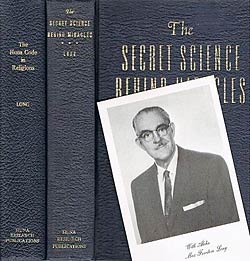Question: How and what is the Huna secret to power?
Answer: The secret is in who and what you are affiliated with, not just your personal capabilities to heal and be powerful. Huna is not merely a set of techniques to apply for yourself. Rather, it is a living and breathing tradition of people working together to help each other live better lives and evolve throughout this life and even through death. Huna is a lifestyle choice.
To summarize, your power can come from these main sources:
1. Power comes from the Po`e Aumakua which is the collection of individual Aumakuas (High Selves) that works on the behalf of the group. This is enhanced with the TMHG, the prayer created by Max and still continuing today. It works by sending mana (energy) and prayers (‘ano’ano) for manifesting into reality. Some Huna groups have their own prayer groups for members. It is very important to know how the prayer group or TMHG is led before you begin to participate.
2. Power comes from your own Aumakua. You can develop this power by improving the relationship within yourself and properly seeking its support. Your Aumakua opens the way as you pursue what you choose in life.
3. Power comes from your Ohana, or chosen Huna community. In the West we have lost the family-oriented and tribal way of life. The culture emphasizes independence and self-reliance. A person can accomplish much more in connection with like minded people.
4. Power comes from your own personal ability to decide what you want and to use tenacity and intention to make it so. Many techniques are available in Huna to support this.
5. Do you need power after you have died? The teaching of Kahuna Max and Kahuna Oscar Brunler is that there is almost no mana in Po (The Void) and land of the dead.
As you have very little mana after you die, your physical power is limited as well. But in Huna, the duty of the living is to support the deceased on their journey and while they’re in the Dreamworld. This is done through an offering of mana-infused `Awa (kava kava) during a formal `Awa ceremony held on the Holy Day of Remembrance.

